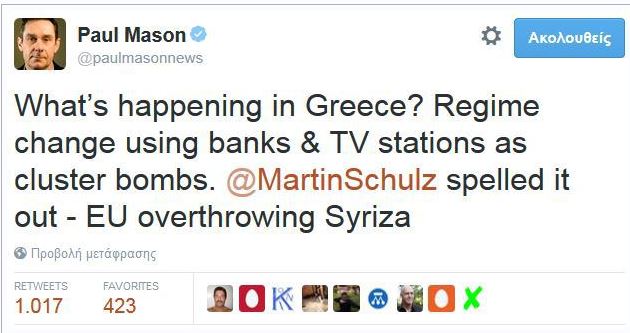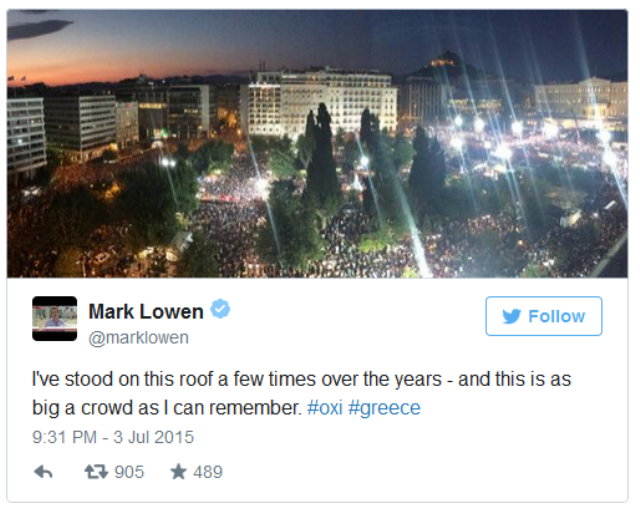Here's an interesting
opinion column (in French) from former European Commission president Jacques Delors, former World Trade Organization director-general Pascal Lamy and former European Commissioner (and Portugal defence minister) Antonio Vitorino.
In a nutshell, they say that the Greek problem will remain a European one, whatever the referendum results are tomorrow, and to not only assess the economic and financial consequences Greece leaving the Euro zone would lead to, looking at it through the IMF looking glass, but to also to take into account the geopolitical consequences.
They're asking Greece to clearly break up with the system they've ran these last 40 years, to resist the temptation to impute most of Athens' problems to external causes, and for the government to stop considering that they're the only ones legitimately acting in the name of their people, trying to impose their views on their European counterparts. That's, according to them, the only conditions that would bring them back some credibility in the eye of their European partners, who would then stop thinking that they're pouring money in a bottomless well (with nice reference to the Danaïdes here.)
They are then asking the EU to take its whole part in this process, by offering an overall plan to help Greece recovering. First, by offering some reasonable financial help that will allow Greece to recover its solvency in the short term. Then, by mobilizing the EU instruments to reanimate the Hellenic economy, and thus bringing back economic growth, that will by itself lighten the debt/GDP ratio of the country. And finally by bringing the question of [reducing] the weight of the Greek debt, and the ones of the other countries being currently covered by the EFSF program, on a European framework level
as soon as the necessary reform engagements are made.
Only such a global plan would in their opinion bring the perspectives of hope and mobilisation required for the Greek people and its authorities to properly engage in the efforts of reconstruction their country needs, and that would benefit UE.
[Hope my translation / take on the matter makes sense.]
No surprise Jacques Delors and his friends are calling for cooperation and solidarity here.
I hope their call will be heard by both sides.





